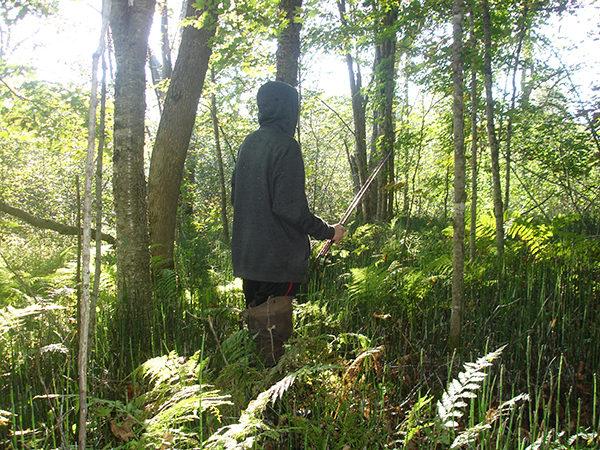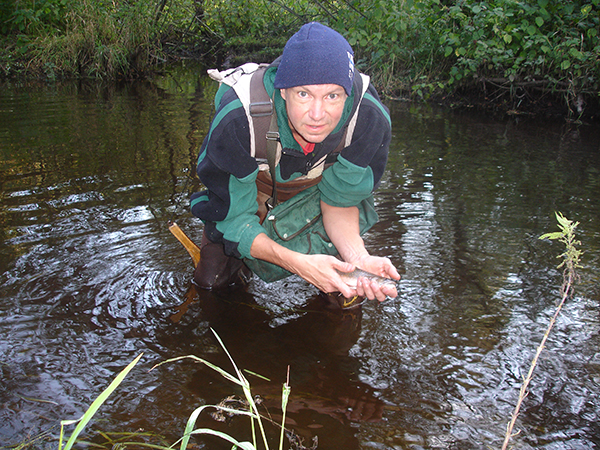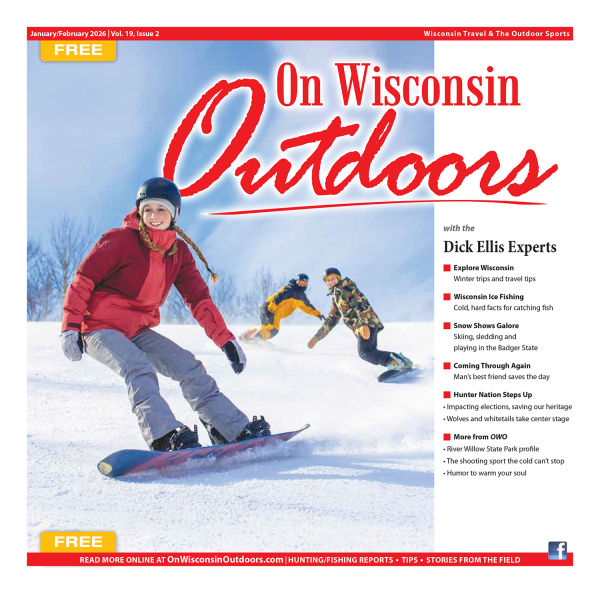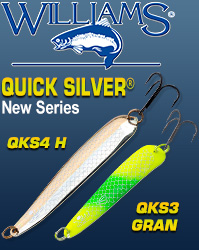Fencerows: Homecoming
By John Luthens
It was a sleepy September morning in the quiet streets of Cumberland, Wisconsin. The sun had yet to crest the horizon over the farm fields and maple-lined valleys in Barron County, and the only beacon of activity came from the bean-canning plant on the outskirts of town, pouring a steady flow of Wisconsin’s finest harvest from the field trucks and onto the plant conveyors.
“Did I ever tell you about the summers I worked at the canning plant to put myself through college?” I asked my son. “I was outside, unloading the bean trucks, seven days a week, whether it was a driving rain or one-hundred degrees. I’ll tell you what, if those bean cans could talk, they could sure tell some stories.
We were winding up a weekend tour of the Barron County area where I’d grown up. I’d dragged my son through the old stomping grounds, past my old house and my old high school. I’d introduced him to friends, many whom I hadn’t seen myself since a 1987 graduation ceremony. For me, it had been a homecoming of sorts; a winding trip back down memory lane.

The sun rises over a homecoming, and over a new generation of trout fishermen along the Yellow River.
My son yawned as we drove past the canning factory where I’d toiled away so many fine summer days and nights. He was still as sleepy as the town. He’d already heard too many stories over the weekend. He told me that if a bunch of beans and my glory days were the only reason we got up so up early, then we might as well have stayed in bed.
The true reason behind being up before the sun was for one last homecoming visit. There was an old family friend, maybe the best one I’d ever had. He’d always come to visit in the spring and stay through summer’s end. When the sun was still young and fresh over the valleys and fields of Barron County, back when my glory days were still in full swing; back then, I’d meet him with a fishing rod every chance I got.
The Yellow River was trout water, but it was not the easy water that you see in the magazine pictures: a graceful fly caster arching a line over a pristine stretch of tumbling riffles, with snow-capped mountains in the background the only thing standing guard to snare a back cast. No, the Yellow River was choked in nettle, tag-alders and sinking bogs, and he was a reclusive friend who did not care in the least to have his muddy pictures splattered in the trout fishing tabloids.
The Yellow was my first introduction to the world of trout. Through countless trips with my own father, I came to understand what it meant to chase them in their native element. I explored a jungle world of sweat and spider webs and bugs, and sometimes outright struggle. The dividends were often no heavier than one of the bean cans I’d helped to create at the canning factory, but the memories gained in reaping those dividends were priceless.

The author, with a brook trout taken from the Yellow River in Barron County.
Now, somewhere north of Barron and east of Cumberland, all those years and glory days later, I stood again on the overgrown banks of the Yellow. It was time to live vicariously through my own son. It was time for a true homecoming.
My son eyed me suspiciously as we climbed into waders and hip boots and strung out rods. “Looks pretty thick,” he said.
“It’s the middle of September. It’s been cold at night and dry. A lot of the bank growth will have started dying back,” I lied, deliberately leaving out mention of the quicksand-like bogs that the worst of drought conditions couldn’t dry out.
We entered the alders on a deer path, but evidently the deer had gotten smart and backtracked. Soon we were swimming in brush. We shadowed the river, keeping track of it by the stands of stinging nettle that grew along its banks. The nettle was yellowing in the fall weather, but it was still summer-vicious and as tall as our eyeballs.
I sunk to my knees in a moss-covered mud hole, and my son had to pry out my legs out with a tree branch. My wooden landing net snapped in two as I lay on my back gasping for breath. “That was my favorite net. If I had a nickel for every piece of equipment that I lost and broke in here over the years, I’d be driving a new truck. And if I had a nickel for every piece of equipment your grandpa lost in here, I’d be rich.” I said.
My son took the broken net and squelched it into the oozing mud with his pry bar, giving it a proper burial. “If you would lay off the ice cream a bit, you wouldn’t sink in so far, and maybe you’d be able to save enough money to buy a new net.”
“Give me yours. I catch bigger fish so I need it more than you,” I said. We laughed and moved further into the Yellow River wilds. That’s how it went. Old memories sprang from the swamp and spanned into a new generation.
We waded into the river together and caught trout beneath the overhung banks. They were not trophies, but they were there as I’d remembered. A father and son, rod tips bent to the water with purple and red lightning splashing on the end of the lines. Time had crashed onward, but the brook trout had stayed patient. Sun splashed down through branches and defied the dark shadows beneath the brush. It was a homecoming. It was as if I’d never been away.
John Luthens is a freelance writer from Grafton, Wisconsin. His first novel, Taconite Creek, is available on Amazon or at www.cablepublishing.com or by contacting the author at Luthens@hotmail.com









